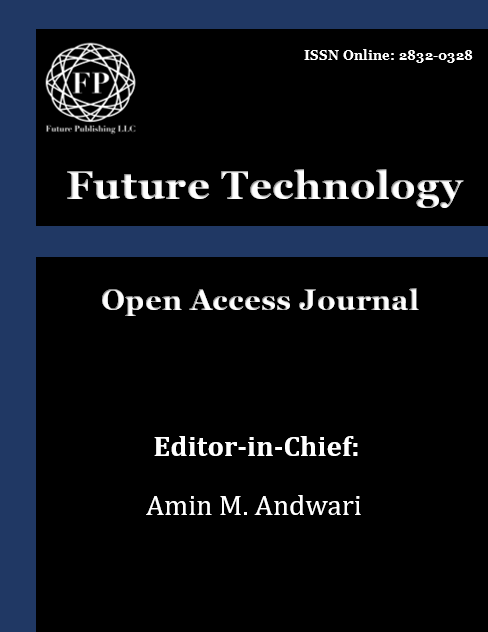Call for Papers - Volume 05 | Issue 01
2025-09-11

Future Technology (FUTECH) Journal provides Rapid Open Access Publication for submitted research papers.
FUTECH is a peer-reviewed journal, so only high-quality research works are published.

The Future Technology (FUTECH) Journal (ISSN 2832-0379) is an international, peer-reviewed, open-access journal focusing on emerging scientific and technological trends and is published quarterly online by Future Publishing LLC.
The FUTECH Journal aims to be a leading platform and a comprehensive source of information related to the science and technology infrastructures that ensure a sustainable world. The multi-disciplinary FUTECH Journal covers research in Financial Technologies, Artificial Intelligence (AI), Computer science, Quantum technologies, Material Science, Environmental Technologies, Biotechnologies, Biomedical technologies, Physical Sciences (including Physics, Chemistry, Astronomy and Earth Science), Electrical, Mechanical, Aerospace, Chemical, Medical, and Industrial Engineering.
The peer-reviewed open-access FUTECH Journal is steered by a distinguished editorial board and supported by an international reviewer team, including outstanding professors and researchers from prominent institutes and universities worldwide. The FUTECH Journal aims to provide an advanced forum for technological investigations to both technology researchers and professionals in related disciplines.
2025-09-11

Future Technology (FUTECH) Journal provides Rapid Open Access Publication for submitted research papers.
FUTECH is a peer-reviewed journal, so only high-quality research works are published.
This issue of the Future Technology Journal highlights the transformative role of artificial intelligence, machine learning, and digital technologies across multiple sectors — from industrial upgrading and smart manufacturing to digital finance, education, cultural heritage, and urban innovation. The papers explore how AI-driven systems enhance decision-making, optimize resource management, and improve human–technology interaction in diverse applications such as autonomous robotics, sustainable power, virtual learning, and intelligent tourism. Together, these contributions reflect the journal’s commitment to advancing interdisciplinary technological research that bridges innovation with societal progress, shaping the future of intelligent systems and sustainable digital transformation.
Peer-reviewed articles that are accepted for publication in this journal are referred to as Articles in Press. Once the final version of an article is allocated to specific volumes/issues of the publication, the Article in Press version will be removed, and the final version will be included in the respective published volumes/issues. The original online availability date of an article will remain unchanged. It's important to note that Articles in Press can be cited. The appropriate citation method is indicated on the initial page of the PDF file associated with the articles.
Vol. 5 No. 1 (2026): February 2026 Issue
The February 2026 issue of Future Technology Journal highlights cutting-edge research at the intersection of AI, digital technologies, and sustainability. Articles cover diverse topics, including smart manufacturing, precision agriculture, energy-efficient systems, human-AI collaboration, and intelligent supply chain management. The issue also explores AI-driven innovations in healthcare, cybersecurity, cultural heritage conservation, and industrial interface design. Collectively, these studies showcase how advanced technologies are shaping more efficient, sustainable, and user-centric solutions across industries and society.
Published: February 15, 2026